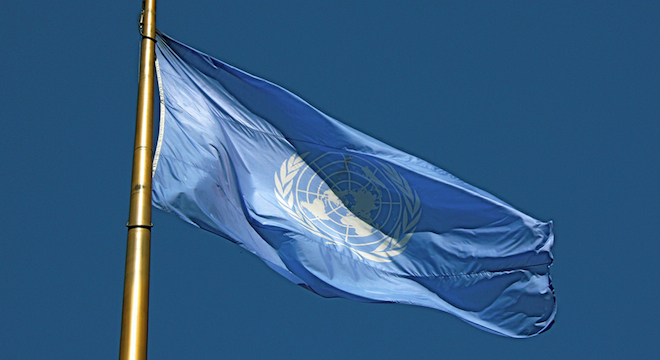This December, representatives from the 193 nations that make up the United Nations will convene in Dubai for a summit to remake the Internet, and not necessarily for the better, with some nations offering up new proposals that could give the U.N. the ability to intervene in cybersecurity issues, Internet taxation and content filtering.
Online freedom advocates are calling such proposals “troubling,” at best, arguing that the Internet would not benefit from increased intervention from the U.N. agency in charge of the summit, the International Telecommunications Union (ITU).
“These proposals show that many ITU member states want to use international agreements to regulate the Internet by crowding out bottom-up institutions, imposing charges for international communication, and controlling the content that consumers can access online,” wrote Eli Dourado, a research fellow at the George Mason University Mercatus Center, in a blog post on Technology Liberation Front on Friday.
The U.N. summit, called the World Conference on International Telecommunications (WCIT-12), is being held to update a treaty the countries agreed to back in 1988, before the mass adoption of the commercial Internet, cable television and wireless networking.
But the proposed changes outlined in the leaked document, called “Temporary Document 62,” go far beyond the 1988 treaty’s aims of ensuring that the international telephone calling system would work basically the same around the globe.
As Dourado points out, Russia has proposed a new update that would treat the Internet like the international telephone system, “metered along national boundaries and billed to the originator of the traffic,” potentially meaning that highly-trafficked websites like Google and Facebook could be taxed by countries overseas.
Perhaps even more directly concerning for web users is a proposal supported by Russia, Rwanda, Egypt and Algeria to add a definition for “spam,” to the agreements that would allow governments to begin deeming certain content as such and requiring its removal.
But as the document notes, “The United States does not agree…to add an issue like spam would also change the technological neutrality of the treaty.”
Another proposal floated by Russia, Algeria and “the Arab States,” would add “security” to the main reason for the existence of the agreements in the first place. Again, “the United States does not support this proposal.”
It’s worth noting of course, that these proposals have taken on an added dimension of international intrigue after the discovery in late May of the Flame malware, an information-stealing program found on computers mainly in the Middle East, most notably Iran, which had also been previously hit by the Stuxnet virus.
Stuxnet itself was recently reported to be the work of a U.S.-Israeli effort to hamper Iranian nuclear ambitions. The ITU, which publicly doubts Flame is the work of the U.S., has nonetheless used the emergence of Flame to call for increased cooperation on cybersecurity. The ITU has been accused by U.S. lawmakers of leveraging the opportunity to “take over” the Internet.
Dourado, despite his criticisms of the ITU’s process, isn’t worried about that possibility, at least not yet.
“I don’t think a lot of these proposals will end up being passed,” Dourado told TPM. “I’m worried about something a little bit more subtle, that the ITU will use its opportunity in setting these mandatory standards to gain a foothold in defining certain types of content regulations. They could be very modest at first, but they could also give member states legal cover to spy on their citizens, especially as the treaty gets updated in later years.”
Many of the new proposed updates to the regulations weren’t initially public knowledge, due to the fact that the ITU restricts access to its documents to government officials and paying applicants like universities, with fees that can run up to the thousands of dollars, a stark irony given the agency’s stated goal of “connecting the world.”
But Temporary Document 62, was posted Friday on a new website, WCIT-Leaks.org, launched on June 6 by Dourado and his George Mason colleague Jerry Brito, though the co-creators stress that the website is a side project and not affiliated with their roles in academia.
“It seemed weird to me that someone wasn’t collecting and publishing the documents,” wrote Brito on his personal blog.
The ITU did not respond to requests for information on the document in time for the publication of this piece.






